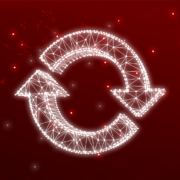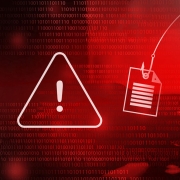Please note that our support team will not be available on Thursday, May 30, 2024 due to the regional holiday (“Fronleichnam”). All incoming tickets will therefore not be processed until Friday, May 31, 2024.
From June 14, 2024, there will be a new certificate chain for email encryption for the Bundesagentur für Arbeit, the Jobcenters and the Institut für Arbeitsmarkt- und Berufsforschung. Find out what you need to do now in our blog article.
NoSpamProxy uses Bouncy Castle as an additional library for some operations. Bouncy Castle version 1.8.9 is used in the current NoSpamProxy version 15.1.940. Three new vulnerabilities have been published for Bouncy Castle. NoSpamProxy is not affected by any of these CVE.
Version 15.1 of NoSpamProxy Server is now available! The new version of NoSpamProxy Server continues to stand for advanced spam protection and email security. With version 15.1 you can continue to ensure secure electronic communication.
It is essential for companies to continuously update and improve their IT systems. We meet this need with a sophisticated update system for the two products NoSpamProxy Server and NoSpamProxy Cloud. Through regular updates, we ensure that NoSpamProxy users always benefit from the latest features and optimum security.
For some time now, NoSpamProxy customers have also been able to find all the content of the Knowledge Base in the NoSpamProxy online help. At the end of April, we will take the Knowledge Base offline for good. Here you can find out what you need to do now.
Cloud services are now an important part of the working world, and as digitalisation progresses, more and more processes are being shifted to cloud services. But what if spammers also take a liking to these easy-to-use services and use them for phishing attacks?
When one of our technology partners published a mandatory announcement in February 2023 stating that it was facing financial difficulties and had to lay off a large number of employees, it quickly became clear that a replacement for our existing sandbox solution was needed. Thus, the 32Guards Sandbox was born.
NoSpamProxy
Categories
Latest News
 NoSpamProxy Cloud Update July 202424.07.2024 - 08:00
NoSpamProxy Cloud Update July 202424.07.2024 - 08:00 NoSpamProxy receives VBSpam+ Award (Q2/2024)23.07.2024 - 10:00
NoSpamProxy receives VBSpam+ Award (Q2/2024)23.07.2024 - 10:00 Looking back at the NoSpamProxy Roadshow 202401.07.2024 - 10:02
Looking back at the NoSpamProxy Roadshow 202401.07.2024 - 10:02



